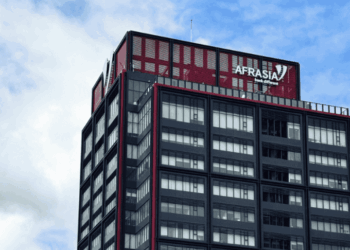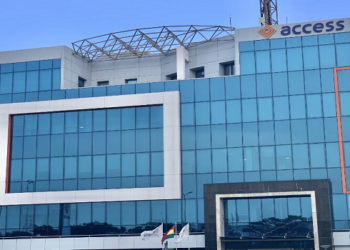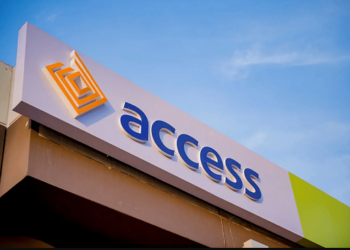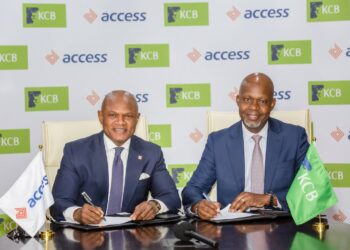Access Holdings, the parent company of one of Nigeria’s largest banks, Access Bank, recently announced the resignation of Roosevelt Ogbonna as a Non-Executive Director of the group.
The resignation of Roosevelt, a veteran of the bank and one of the most recognizable figures in the Nigerian banking industry, sent shock waves across the sector, with many questionings why such a decision was taken at this time.
Access Bank explained that the move was in compliance with the Central Bank of Nigeria’s Corporate Governance Guidelines for Financial Holding Companies (2023), which stipulate that no more than nine directors can sit on the board of a financial holding company.
According to the CBN Guidelines, the minimum and maximum number of directors on the Board of an FHC shall be seven (7) and nine (9) respectively.
Access HoldCo already had nine directors on its board, including Roosevelt, raising further questions about the decision. Roosevelts image has already been removed from the HoldCo’s website.
Access Bank contributes over 90% of Access HoldCo’s group revenues and over 95% of its total assets, stoking concerns among stakeholders about whether there might be hidden reasons behind his exit. Roosevelt remains the bank GMD/CEO.
Sources close to Roosevelt and within his inner circle who spoke to Nairametrics insisted that the decision was not due to foul play or boardroom rancor.
They maintained that the move was a board decision in which Roosevelt was fully involved, emphasizing that there were “no issues” behind it.
Some industry stakeholders, however, expressed surprise at the development, given Roosevelt’s influence on the board and his wealth of experience in the industry.
What they are saying
One activist shareholder who holds stakes across companies on the NGX suggested that this may be a power play between Aigboje Aig-Imoukhuede, the chairman of Access Holdings, and Roosevelt.
- Multiple sources have pointed to a difference in leadership style between Aig-Imoukhuede and the late Herbert Wigwe, which has allegedly put some of Wigwe’s close allies under pressure.
- However, senior sources within the bank dismissed this narrative, insisting there was no rancor. According to them, leadership changes are natural when a new chairman—especially a co-founder—is at the helm. Aig-Imoukhuede is also known as the most conservative of the founders.
HoldCos and board compositions
A Nairametrics review of holding companies in the banking sector shows that Access HoldCo is not alone in having the MD/CEO of its banking subsidiary absent from its board. However, very few HoldCos have subsidiaries as large and influential as Access Bank.
- FirstHoldCo, which owns First Bank, has 8 directors, including Olusegun Alebiosu, the GMD of the banking subsidiary.
- GTCO, owners of GTBank, has 6 directors, but its banking subsidiary MD/CEO, Miriam Olusanya, is not on the board.
- Stanbic IBTC Holdings has 8 directors, and like GTCO, its banking subsidiary MD/CEO, Wole Adeniyi, is not on the board.
- FCMB Group, one of the first HoldCos in the sector, has 11 directors, but its bank subsidiary MD/CEO, Yemisi Edun, is not on the board.
- Sterling HoldCo has 8 directors, but unlike others, its banking subsidiary MD/CEO, Abubakar Suleiman, sits on the board.
What you should know
Access Holdings Plc was established in 2022 following regulatory, judicial, and shareholder approvals of a Scheme of Arrangement between Access Bank Plc and its shareholders.
- Mr. Ogbonna was appointed MD/CEO of Access Bank Plc in May 2022, after serving as Deputy Managing Director from 2017 and Executive Director from 2013.
- He joined Access Bank in 2002 from Guaranty Trust Bank and has accumulated more than two decades of banking industry experience
- While Ogbonna is no longer a non-executive director of Access Holdings Plc, he simultaneously held the position of MD/CEO of Access Bank, overseeing 17 banking subsidiaries in Nigeria and across Africa.
Access Holdings is one of the largest financial groups on the continent by number of subsidiaries.



























The exclusion of a key position of a major player in the business of the holdco tells a lot about the internal wrangling in the system